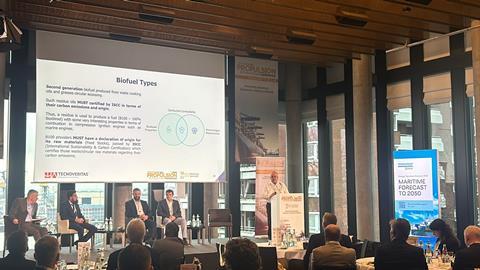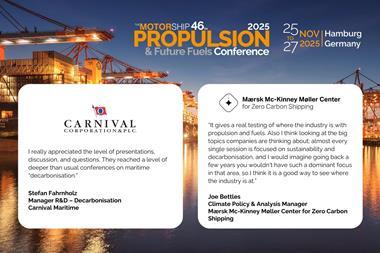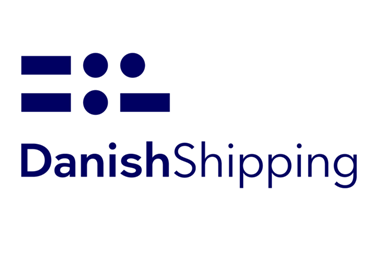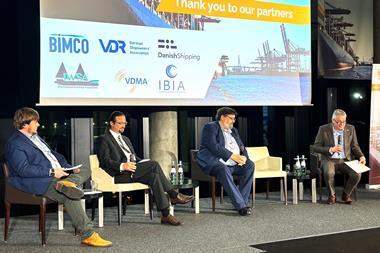Methanol’s rise, onboard carbon capture challenges, and LNG’s versatile advancements from the Propulsion and Future Fuels event

Onboard Carbon Capture, a Regulatory Minefield
- Challenges and Efficiency: Joe Bettles and Manfred Lebmeier discussed the energy penalties and regulatory challenges of onboard carbon capture (OCC), highlighting the complexity of handling captured carbon.
- Technological Feasibility: Sergey Gribanov noted that while OCC technology exists, it needs to be more efficient and economically feasible, with regulations like EU ETS and MRV still lacking necessary details.
- Future Framework and Innovation: Harry Conway mentioned that the IMO is working on a framework for OCC, potentially ready by 2027, and emphasized that innovation will drive the process forward.
Methanol’s Growing Role in Decarbonising Shipping
- Industry Leaders’ Insights: Hannes Lilp and Kjeld Aabo highlighted methanol’s pivotal role in maritime decarbonization, emphasizing its efficiency, environmental benefits, and ease of adaptation.
- Technological and Policy Support: Lilp discussed SRC Group’s global capabilities and multidisciplinary expertise, while Aabo noted the need for supportive policies and investments to scale up methanol production.
- Current Adoption and Future Potential: Methanol is already used by 313 vessels, with over 150 renewable methanol projects in development, showcasing its immediate viability and long-term potential.
Experts Highlight LNG’s Future Relevance
- Versatile LNG Solutions: Can Murtezaoglu from GTT emphasized the versatility of LNG storage solutions, adaptable for future fuels like ammonia and methanol, and highlighted GTT’s commitment to innovation.
- Engine Advancements: Thomas Werner from WinGD introduced the X-DF 2.0 platform with iCER and VCR systems, significantly improving fuel efficiency and reducing emissions, making LNG engines competitive with traditional diesel engines.
- Long-term Viability: Both leaders underscored LNG’s role in maritime decarbonisation, with GTT focusing on versatile storage solutions and WinGD on engine advancements, aligning with long-term emission reduction goals.







